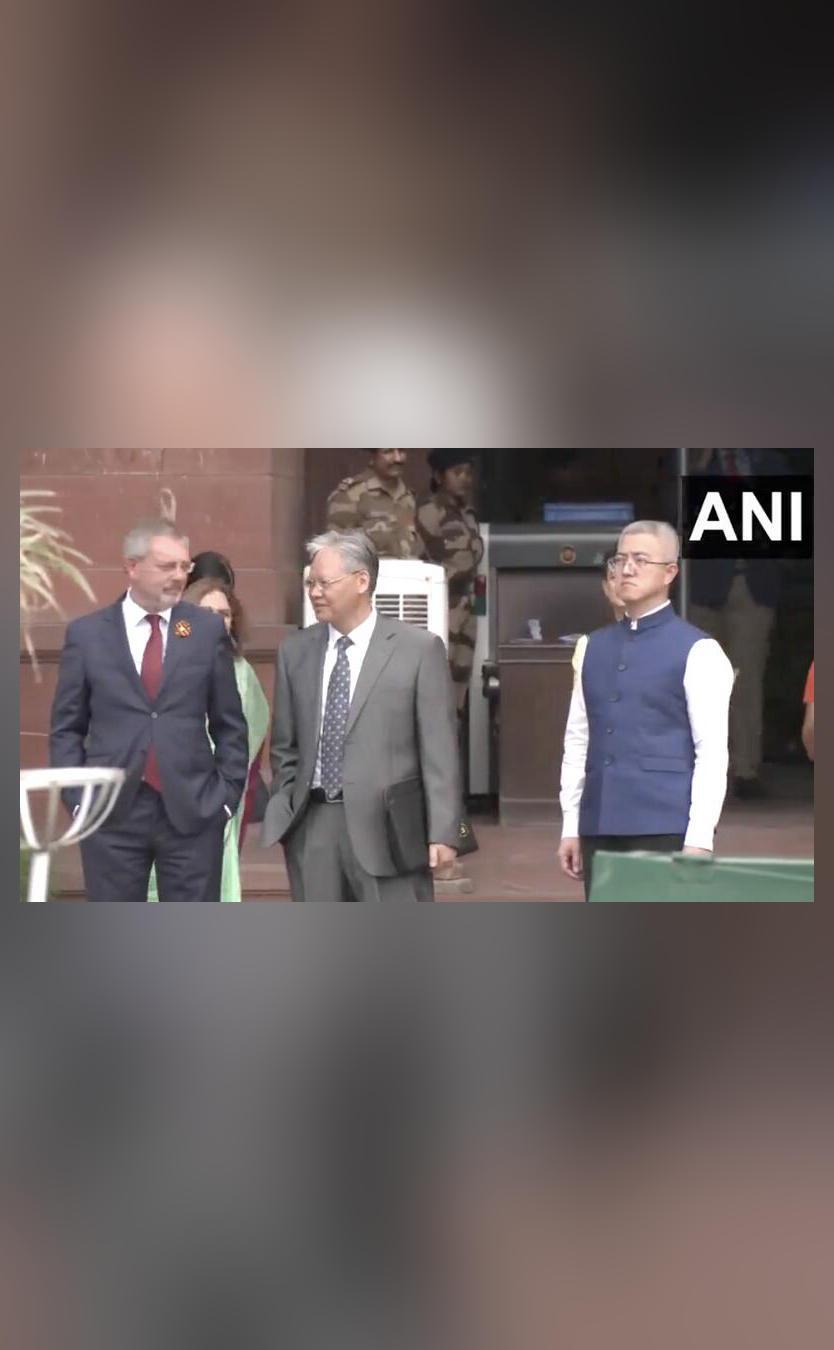
India briefs UNSC members on Operation Sindoor, shows proof of Pak’s role in Pahalgam attack
In a significant development, the Indian government has briefed the permanent and non-permanent members of the United Nations Security Council (UNSC) on Operation Sindoor, the surgical strikes carried out by the Indian Armed Forces against terrorist hideouts in Pakistan and PoK. The briefing was conducted by the Ministry of External Affairs in Delhi, and it is reported that evidence of Pakistan’s involvement in the Pahalgam terror attack was shared with the ambassadors.
Operation Sindoor was conducted in response to the brutal terrorist attack on a bus carrying Amarnath pilgrims in Pahalgam, Jammu and Kashmir. The attack, which took place on July 10, claimed the lives of eight innocent civilians and left many more injured. The Indian government had condemned the attack and vowed to take strong action against those responsible.
The briefing, which was held behind closed doors, provided the UNSC members with details of the Operation Sindoor, including the locations of the terrorist hideouts that were targeted and the extent of the damage caused to the infrastructure and equipment of the terrorists. The Indian government also shared intelligence evidence that revealed Pakistan’s role in the Pahalgam attack, including the involvement of Pakistani terrorists and the provision of support and funding by the Pakistani government.
According to reports, the Indian government presented a comprehensive dossier to the UNSC members, which included video footage, photographs, and other evidence of the attack and the subsequent military operation. The dossier also highlighted the failure of Pakistan to take concrete action against terrorist groups operating from its soil and the country’s continued support for terrorism.
The briefing was attended by ambassadors from the permanent members of the UNSC, including the United States, the United Kingdom, France, China, and Russia, as well as non-permanent members. The Indian government’s move to brief the UNSC members on Operation Sindoor is seen as a significant step towards internationalizing the issue of terrorism and highlighting Pakistan’s role in sponsoring and supporting terrorist activities.
In recent years, India has been at the forefront of the global fight against terrorism, and the country has taken several steps to strengthen its counter-terrorism capabilities. The Indian government has also been pressing the international community to take concrete action against terrorist groups and their sponsors, and to recognize the threat posed by terrorism to global peace and security.
The briefing on Operation Sindoor is seen as a key step in this direction, as it provides an opportunity for the Indian government to share its perspective on the issue with the international community and to highlight the need for collective action against terrorism. The Indian government’s move is also seen as a response to the criticism it has faced from Pakistan and its allies, who have accused India of exaggerating the role of Pakistan in the Pahalgam attack.
The Pahalgam attack was widely condemned by the international community, and several countries, including the United States, the United Kingdom, and France, had called for Pakistan to take action against terrorist groups operating from its soil. However, Pakistan has been hesitant to take concrete action against these groups, and its failure to do so has led to increased tensions with India.
The briefing on Operation Sindoor is likely to add to the pressure on Pakistan to take action against terrorist groups, and to highlight the need for the country to fulfill its international obligations to combat terrorism. The Indian government’s move is also likely to strengthen its position in the international community, and to provide a platform for the country to promote its perspective on the issue of terrorism.
In conclusion, the briefing on Operation Sindoor by the Indian government to the UNSC members is a significant development that highlights the country’s commitment to combating terrorism and promoting international security. The evidence shared by the Indian government provides a clear picture of Pakistan’s role in the Pahalgam attack, and it is likely to add to the pressure on Pakistan to take action against terrorist groups operating from its soil.
The Indian government’s move is also likely to strengthen its position in the international community, and to provide a platform for the country to promote its perspective on the issue of terrorism. As the global fight against terrorism continues, India’s efforts to combat terrorism and promote international security are likely to play an important role in shaping the future of global relations.



